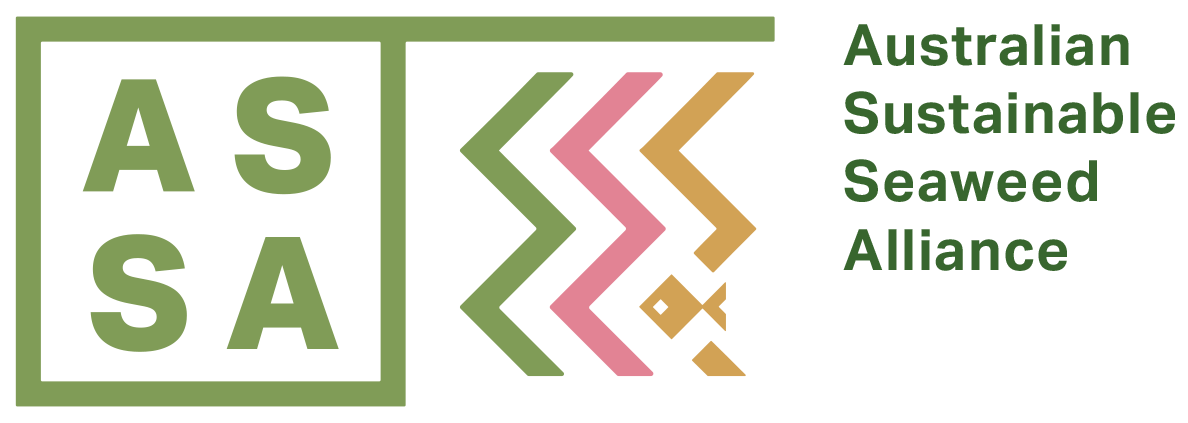From bromoform to net-zero nutrient loads
Queensland-based aquaculture and technology firm Pacific Bio has focused on a new processing technique for Asparagopsis seaweed in the past year. It has also further developed water treatment processes that use green algae to filter unwanted nutrients, securing commercial agreements with urban wastewater treatment authorities in North Queensland and Sydney.
On the Asparagopsis front, CEO and Managing Director Sam Bastounas says it has registered international patents for 22 countries around the world for a low-cost process that extracts the active compound bromoform from the seaweed for use in animal feed supplements.
The new process uses lipids – or oils – to extract the bromoform. It is a practical, low-cost alternative to freeze-drying, a process that has been used for much of Asparagopis research and product development to date.
Bastounas says the process has been developed in conjunction with James Cook University, and it should help those growing or naturally harvesting seaweed globally to access the bromoform at a lower capital cost. Cheaper processing should make feed supplements more affordable for livestock producers. Increased use will support the larger aim of reducing methane emissions from livestock and help the seaweed industry to expand.
PacBio and JCU recently sold the patent to FutureFeed who will commercialise it alongside the existing method-of-use patents for Asparagopsis.
Algae in urban water treatment
In the water treatment and bioremediation space, Pacific Bio has consolidated plans to expand the use of RegenAqua technology in conjunction with local councils in Queensland and more recently in SydneyPacific Bio has been operating a RegenAqua pre-facility at the Burdekin urban wastewater plant since March 2021. Results have exceeded world best practice for reducing nutrient pollution. Construction of a commercial-scale demonstration facility is expected to begin within the next 12 months, supported by Burdekin Shire and state government funding.
As a result of the Burdekin pre-facility, planning is underway for further Regen Aqua projects with Townsville City Council, at Magnetic Island, and Hinchinbrook. The company has identified 22 water treatment facilities that could be converted to RegenAqua processes.
In September 2022 Pacific Bio signed a deal with Sydney Water to build a RegenAqua pre-facility at Picton that will be four times the size of the one currently operating at Burdekin. This facility will be fully operational by January 2023
In addition to the promising results in water treatment, Bastounas says there is a definite cost advantage in using a bioremediation process, as traditional treatments such as membrane reactors are both expensive to build and power-hungry to run.
“Our recent results at Burdekin have shown that RegenAqua can outperform a membrane reactor and can remove both DIN and phosphorous which is usually treated by alum in a very energy-intensive process that loses phosphorous to the biosphere. RegenAqua both substantially sequesters and abates carbon. Recent independent modelling has shown the system is seven times cheaper than other commercial solutions,” he says.
“The beauty of our system is its circularity in that we extract nitrogen and phosphorous out of the waste stream in what is a wasteful linear model and make biostimulants that are critical input for farming.”
Bastounas notes that capturing phosphorus is particularly valuable; it is critical input for healthy crops, but globally it is a limited resource and supplies are dwindling.
Expanding aquaculture clean up
While green algae are used for freshwater treatment, it uses sea lettuce – a species of Ulva – in its marine water, specifically at the company’s prawn farm, at Ayr, south of Townsville. Since 2018 it has been using Ulva to treat water from the farm and remove nutrients, and production totalled 1000 wet tonnes in2021–22, with year-round harvesting.
“We are continuing to develop that technology and have built world-class seaweed nurseries at our Alva Beach algal facility next to our prawn farm. We are working towards a zero net discharge farm – zero carbon, phosphorus, and nitrogen. Our vision is to enable the growth of sustainable onshore aquaculture in Australia and around the world using green seaweed.”
“We’re rapidly trying to build capacity in our networks, and we are open to commercially supplying seaweed from our nursery. We have several aquaculture businesses that have approached us – barramundi and prawn farmers. They all have the same water treatment issues and we are more than happy to work with them on installing RegenAqua macroalgal facilities to help them reduce discharge,” Bastounas explains. Demand for the company’s seaweed and algae products currently exceeds its ability to supply and the company is actively raising equity to continue its rapid expansion. Its products include PlantJuiceÔ, a biostimulant for the agricultural sector, ReefAsta a wellness product developed by the company, aquafeeds and a range of animal feeds are all in high demand.
Pacific Bio currently employs 120 staff. Most are based in Queensland across prawn farming, water remediation and product development operations, with a small corporate team at the company’s headquarters in Melbourne. Bastounas highlights advocacy as an ongoing challenge for the industry. “We need to keep raising awareness about the role that algae and seaweed can play in improving the environment,” he says.

